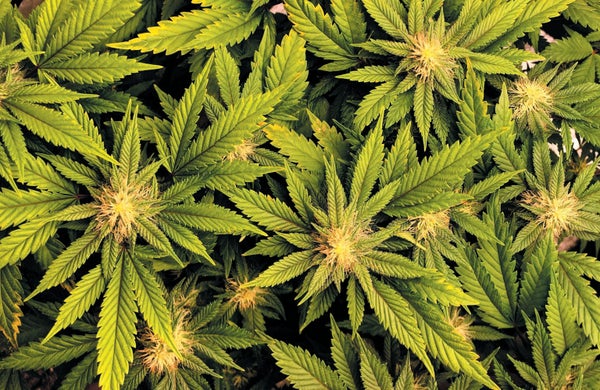Is Marijuana Bad for Health? Here’s What We Know So Far
Marijuana’s health impacts—good and bad—are coming into focus
Cappi Thompson/Getty Images
With decades of legal and social opprobrium fading fast, marijuana has become an extremely popular commercial product with more than 48 million users across the U.S. Health concerns, once exaggerated, now often seem to be downplayed or overlooked. For example, pregnant patients “often tell me they had no idea there’s any risk,” says University of Utah obstetrician Torri Metz, lead author of a recent paper in the Journal of the American Medical Association on cannabis and adverse pregnancy outcomes.
Fortunately, legal reforms are also gradually making it easier to study marijuana’s health effects by giving U.S. scientists more access to the drug and a wider population of users to study. Although much research remains in “early stages,” the number of studies has finally been increasing, says Tiffany Sanchez, an environmental health scientist at Columbia University. As new results accumulate, they offer a long-overdue update on what science really knows about the drug.
The Bad
On supporting science journalism
If you’re enjoying this article, consider supporting our award-winning journalism by subscribing. By purchasing a subscription you are helping to ensure the future of impactful stories about the discoveries and ideas shaping our world today.
In addition to minor side effects that many users joke about—such as short-term memory loss—recent studies have linked marijuana to adverse health outcomes involving the lungs, heart, brain and gonads. For example, heavy marijuana consumption seems to increase the risk of clogged arteries and heart failure, and it may impact male fertility. Smoking weed likewise can lead to chronic bronchitis and other respiratory ailments (although, unlike tobacco, it hasn’t been definitively tied to lung cancer). And cannabis plants hyperaccumulate metal…
Read the full article here







